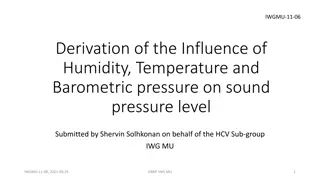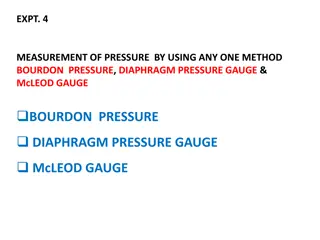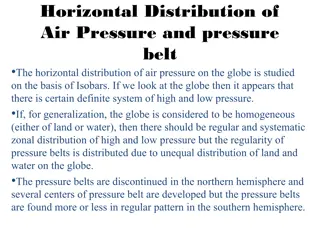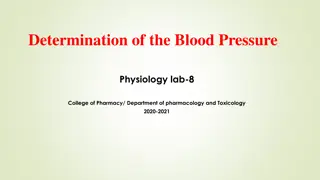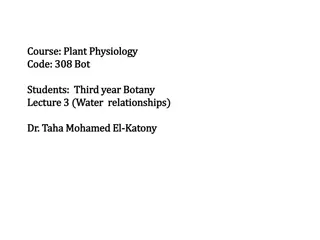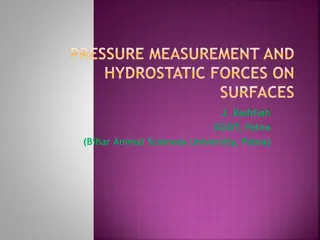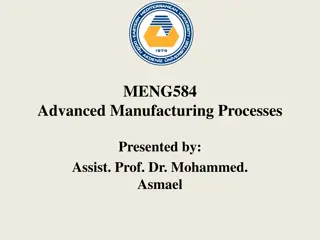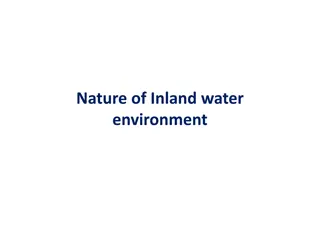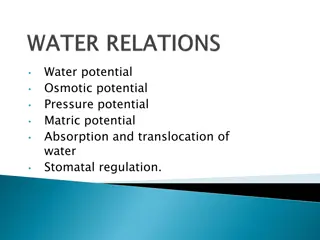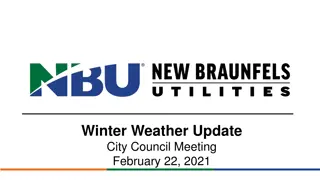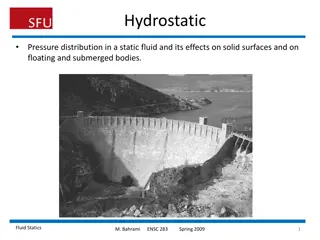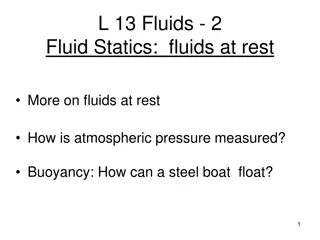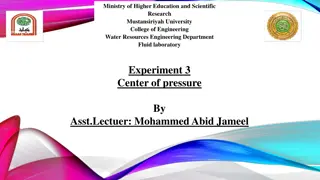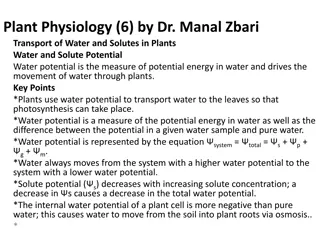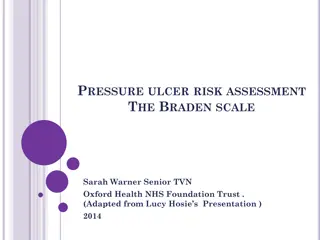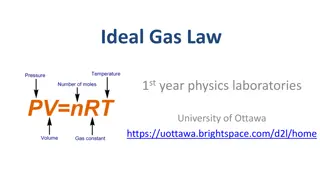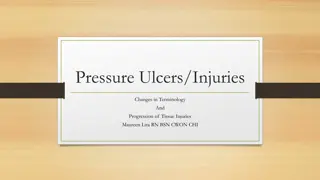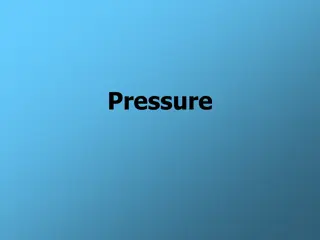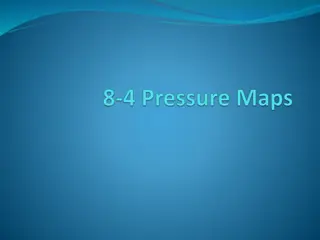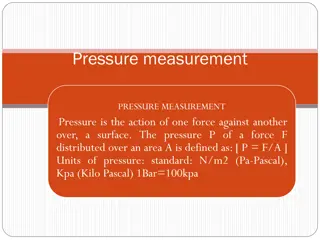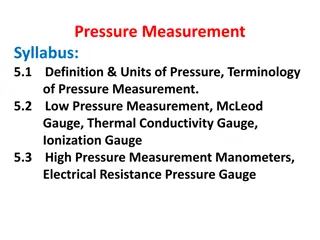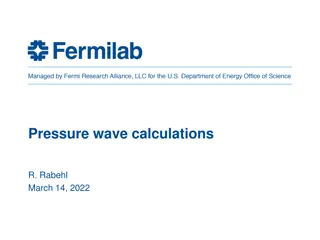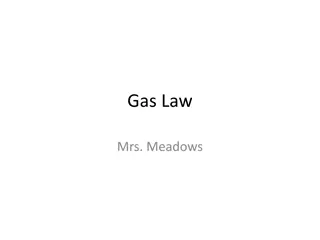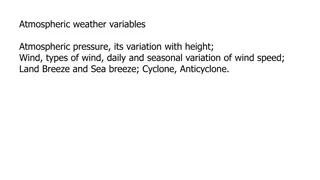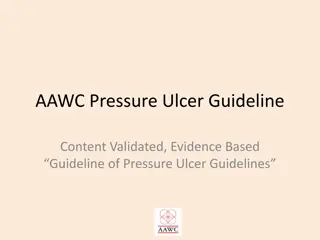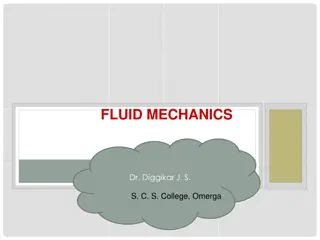Alkaline Water Ionizer Machine In India | Best Alkaline water Machine
\n \nAre you fed up with consuming bland tap water that fails to deliver the health benefits you crave? Ionia presents a solution to revolutionize your water-drinking experience with our alkaline water ionizer machine. Our cutting-edge device converts regular tap water into premium-quality, antioxid
4 views • 5 slides
Water Ionizer India | Best Water Ionizer Machine
Water Ionizer India\n\nAre you worried about the purity of your drinking water? Look no further than Ionia, the premier provider of water ionizers in India. Our state-of-the-art technology converts ordinary tap water into pristine, alkaline, and antioxidant-rich water, ensuring optimal health and vi
2 views • 5 slides
Understanding Fluid Pressure in Oil Field Hydraulics
Explore the fundamentals of fluid pressure including pressure basics, unit conversion, fluid weight constants, true vertical depth, and hydrostatic pressure in the context of oil and gas technology programs. Learn how to calculate pressure gradients, understand the impact of fluid density on pressur
1 views • 40 slides
Water Filtration & Bottles Stay Refreshed Anywhere, Water Filtration & Bottles
Stay Refreshed Anywhere, Water Filtration & Bottles\nSurvival Supplies Australia understands the importance of staying hydrated outdoors. When you're on the move, having a clean and fresh supply of drinking water is essential. Our range, including water filter bottles and portable water filters, ens
3 views • 1 slides
Influence of Environmental Factors on Sound Pressure Levels
In this study, the relationship between sound pressure, particle velocity, and the acoustic impedance is explored in the context of varying humidity, temperature, and barometric pressure. The ideal gas law is used to determine the density of both dry and humid air, considering parameters such as par
1 views • 14 slides
Measurement Methods for Pressure Evaluation
The content describes the measurement of pressure using various methods such as Bourdon pressure gauge, diaphragm pressure gauge, and McLeod gauge. It explains the principle of McLeod vacuum gauge, the operation of the gauge, and the components involved. The McLeod gauge works by compressing a known
2 views • 27 slides
Understanding Horizontal Distribution of Air Pressure and Pressure Belts on the Globe
The horizontal distribution of air pressure and pressure belts on Earth is characterized by isobars, indicative of high and low pressure systems. The regular zonal distribution of pressure belts is affected by the uneven distribution of land and water. Pressure belts are not solely induced by temper
1 views • 7 slides
Understanding Blood Pressure Physiology in a Lab Setting
Blood pressure (BP) is the lateral pressure exerted by the column of blood on the artery wall. This lab aims to determine BP at rest and after exercise using a sphygmomanometer and stethoscope. Learn about systolic and diastolic pressures, pulse pressure, and mean arterial pressure. Methods include
1 views • 17 slides
Understanding Root Pressure in Plant Physiology
Root pressure is the pressure developing in xylem vessels due to metabolic activities of the roots. It is an active process driven by osmotic mechanisms and the absorption of salts by the roots. This pressure plays a key role in translocation of water, affecting factors like respiration, exudation r
1 views • 20 slides
Understanding Pressure Measurement and Hydrostatic Forces on Surfaces
Measurement of pressure using various gauges like Bourdon and Diaphragm Gauge, different types of pressure gauges like Bellows and Dead Weight Pressure Gauge are discussed. Piezometer and different types of manometers for pressure measurement are also explained. Additionally, the concept of hydrosta
2 views • 11 slides
Understanding Water Jet Machining in Advanced Manufacturing Processes
Water jet machining (WJM) is a cutting-edge manufacturing process where a high-velocity water jet is used to erode materials rapidly. This method involves directing a high-pressure, high-velocity water jet onto the workpiece surface, forming cavities by eroding the material. The system includes comp
5 views • 42 slides
Exploring Physical Characteristics and Density Relations in Inland Water Environments
Inland water environments exhibit unique physical characteristics such as pressure variations and density relations influenced by factors like temperature, pressure, and dissolved substances. Water's density changes with temperature and pressure, affecting its mobility and viscosity. Understanding t
0 views • 10 slides
Understanding Water Potential and Osmosis in Plants
This content delves into the concept of water potential, osmosis, and pressure potential in plant biology. It explains how water moves within plant cells, the unit of measurement for water potential, the role of osmotic potential in water movement, and the effects of solute concentration on water po
3 views • 18 slides
Understanding Pressure in Physics and Daily Life
Explore the concepts of force, pressure, and liquid pressure in physics, and how they relate to daily life scenarios. Learn about the relationship between force and pressure, the effects of surface area on pressure, and the application of pressure in everyday objects. Discover the significance of li
0 views • 13 slides
Colligative Properties in Solutions: Vapor Pressure, Freezing Point Depression, and Osmotic Pressure
Colligative properties such as vapor pressure lowering, freezing point depression, and osmotic pressure are characteristics of solutions that depend on the number of solute particles present. This text explores how these properties are related to the concentration of solute in a solution and how the
0 views • 14 slides
Understanding Atmospheric Pressure Variations at Different Altitudes
Atmospheric pressure varies with altitude due to the weight of the air column above. This activity explores how Otto von Guericke's experiments with vacuum systems demonstrate the power of air pressure. Theoretical concepts of atmospheric pressure are discussed, highlighting its relation to gravity
0 views • 28 slides
Understanding Pressure and Designing Objects to Alter It
Pressure is a crucial aspect of physics, and this content delves into the concept by comparing scenarios where a woman in stiletto heels or an elephant exerts pressure on the ground. It explains pressure calculation, discusses how objects designed to decrease or increase pressure work, and challenge
0 views • 22 slides
Winter Storm Event Recap and Recovery Efforts in New Braunfels
Throughout the winter storm event in New Braunfels, the city council and utility teams worked tirelessly to address water leaks, outages, and low water pressure issues. The Electric System documented outage statistics, and after extensive efforts, water pressure was restored system-wide. The communi
0 views • 25 slides
The Global Water Crisis and Transboundary Issues in Southern Africa
The global water crisis is a pressing issue affecting millions worldwide, with about 700 million people currently living below the water-stress threshold. By 2025, this number is projected to reach 3 billion. The increasing pressure on shared water resources in countries like Botswana, Namibia, and
0 views • 52 slides
Understanding Hydrostatic Pressure in Fluid Statics
Explore the distribution of hydrostatic pressure in static fluids and its influence on solid surfaces, floating bodies, and submerged bodies. Learn about the equilibrium between pressure gradient and gravity force, along with concepts like gage pressure and vacuum. Discover how pressure varies in fl
0 views • 24 slides
Understanding Fluid Statics and Atmospheric Pressure Measurements
Exploring the concept of fluid statics, this content delves into topics such as how atmospheric pressure is measured, buoyancy, and why a steel boat can float. It covers the measurement of pressure, the relationship between pressure and depth in fluids, and demonstrations showcasing these principles
0 views • 24 slides
Understanding Barometric Pressure and Its Impact on Altitude
Barometric pressure, also known as atmospheric pressure, is the force exerted by the weight of air on a specific area and varies with altitude. This pressure is crucial in various industries, such as cement production at high altitudes. Learn about how to calculate barometric pressure, its relation
0 views • 37 slides
Understanding the Center of Pressure in Fluid Mechanics Experiments
The concept of center of pressure in fluid mechanics is explored through experiments to find water pressure forces on surfaces immersed in water. Theoretical background equations for partial and complete immersion are provided, along with objectives related to determining water pressure forces and c
0 views • 13 slides
Understanding Blood Pressure Monitoring
Blood pressure monitoring is essential for maintaining overall health. This article explores the significance of blood pressure, the importance of monitoring it, and the methods used to measure blood pressure. It also delves into the clinical need for accurate blood pressure monitoring devices and t
0 views • 22 slides
Optimal Blood Pressure Levels to Prevent Cognitive Decline in Older Adults
Observational study at the 26th European Meeting on Hypertension suggests maintaining high-normal levels of systolic blood pressure between 130-145 mmHg may reduce cognitive decline and mortality risk in older adults. The complex relation between blood pressure and cognitive impairment is explored,
0 views • 9 slides
Understanding Water Potential in Plant Physiology
Water potential is a crucial concept in plant physiology, driving the movement of water within plants. It is a measure of potential energy in water and influences processes like photosynthesis. This potential is influenced by factors such as solute concentration, pressure, gravity, and matrix effect
0 views • 25 slides
Understanding Pressure Ulcer Risk Assessment with the Braden Scale
Pressure ulcer risk assessment is crucial in healthcare settings to identify individuals at risk of developing pressure ulcers. The Braden Scale, developed in 1984, evaluates six key elements contributing to pressure ulcer development. It provides a standardized method for assessing risk levels base
0 views • 20 slides
Investigating Ideal Gas Law: Pressure, Temperature, and Volume Relationship
Explore the relationship between pressure, temperature, volume, and number of gas molecules in a closed system through an experiment based on the Ideal Gas Law at the University of Ottawa's first-year physics laboratories. The experiment aims to determine if air behaves as an ideal gas and find the
0 views • 13 slides
Understanding Pressure Ulcers and Tissue Injuries Progression
Pressure ulcers, also known as pressure injuries, are localized damages to the skin and underlying soft tissue usually over bony prominences. The National Pressure Ulcer Advisory Panel changed the terminology in 2016 to classify all stages as injuries, not just ulcers. Stages range from non-blanchab
0 views • 13 slides
Understanding Pressure Sores and Preventive Interventions for Bedridden Patients
Pressure sores, also known as pressure ulcers, are localized areas of tissue necrosis caused by prolonged pressure on skin and soft tissues. This can lead to serious complications, especially in bedridden patients like a 76-year-old man following a stroke. Preventive interventions include relieving
0 views • 26 slides
Understanding Pressure: Force, Area, and Application
Pressure is a fundamental concept in physics, defined as the force acting perpendicular to an object's surface area. This article explores what pressure is, how to calculate it, and provides examples of its application in everyday scenarios. Learn about the relationship between force and area, the f
0 views • 16 slides
Understanding Air Pressure Through Pressure Maps
Explore the significance of air pressure in understanding weather patterns through pressure maps. Learn to interpret isobars, identify high and low pressure areas, analyze isobar intervals, and understand how air flows from high to low pressure areas. Enhance your meteorological knowledge and grasp
0 views • 6 slides
Understanding Central vs Peripheral Blood Pressure: Clinical Relevance
Central vs peripheral blood pressure differences have clinical implications as systolic pressure amplification occurs due to changes in arterial stiffness moving away from the heart. Central pressure measurements, more closely related to cardiovascular events, provide valuable insights for assessing
3 views • 25 slides
Understanding Pressure Measurement Techniques
Pressure measurement involves the action of force over a surface. Various sensing elements such as Bourdon tubes, diaphragms, and bellows are utilized for measuring pressure. Bellows sensors are flexible cylindrical enclosures, while Bourdon gauges use coiled tubes for pressure measurement. Differen
0 views • 11 slides
Comprehensive Guide to Pressure Measurement Methods
This comprehensive guide delves into the definition, units, and terminology of pressure measurement, covering low and high-pressure measurement techniques such as McLeod Gauge, Thermal Conductivity Gauge, Ionization Gauge, Manometers, and Electrical Resistance Pressure Gauge. It also explores the re
0 views • 56 slides
Pressure Wave Calculations in Cryogenic Systems
Presentation on pressure wave calculations by R. Rabehl regarding potential differential longitudinal pressure issues in cryogenic systems, specifically related to changing valve positions and their impact on cold masses. The calculations involve dynamic pressure surges using water hammer calculatio
0 views • 6 slides
Understanding Gas Laws and Pressure Units
Gas laws relate pressure, volume, and temperature of gases in various units like atmospheres (atm), mmHg, kPa. Standard pressure is 1 atm with conversion factors. Understanding concepts such as STP, volume, temperature, and Dalton's Law of partial pressure is crucial for solving gas law problems. Ex
0 views • 38 slides
Understanding Atmospheric Pressure, Wind Variations, and Humidity in Weather Systems
The atmosphere is composed of various elements like gaseous molecules, water vapor, and dust particles. Key weather variables include atmospheric pressure, temperature, humidity, wind, cloud cover, and precipitation. Atmospheric pressure is influenced by the weight of air above a point, with average
0 views • 17 slides
AAWC Pressure Ulcer Guideline: Managing Pressure Ulcers Effectively
This content outlines the AAWC Pressure Ulcer Guideline, providing evidence-based recommendations for assessing, preventing, and treating pressure ulcers. The guideline emphasizes the importance of regular skin assessment, personalized care plans, and interdisciplinary wound care management to impro
0 views • 15 slides
Understanding Fluid Mechanics: Fundamentals and Concepts
Fluid mechanics, presented by Dr. Diggikar J. S. and Terri McMurray, delves into the properties of fluids, such as density and pressure, and explains how pressure changes with depth in a static fluid. Learn about ideal fluids, density calculations, pressure measurements, and the distinction between
0 views • 26 slides




